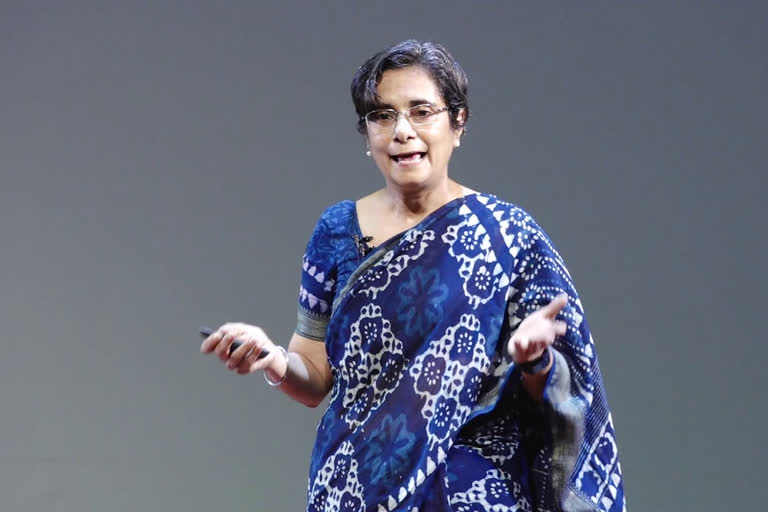Chennai: Omicron, a new strain of Covid 19, has been spreading rapidly all over the world. The government has swung into action to contain the spread. Speaking to ETV Bharat Gagandeep Kang, renowned virologist and professor of Christian Medical College Vellore said that travel bans may help to delay the spread of the virus, but they are not a long term solution. She also said that it was better to focus on pre-travel and post-travel testing strategies.
Q: Do existing vaccines work?
We do not know for sure yet. The neutralizing antibodies are 40 times less among people who got two doses of the Pfizer vaccine. There is no reason that other vaccines will be different. It is important to remember that right now this is lab data and not the actual performance of vaccines in people, which we will know soon.
Q:What is the infection rate of this strain?
Very high-likely to be higher than delta. This may be because there is a mix of transmission and immune escape which allows for reinfection at a high level in people who have been vaccinated or infected.
Q:Should the Government of India impose a travel ban on countries most affected by Omicron?
Travel bans delay but do not completely prevent transmission, so better to focus on pre-travel and post-travel testing strategies.
Q:Will this strain cause severe oxygen deficiency like the previous wave?
Based on early data, it seems to have fewer oxygen requirements, but we need to wait and see.
Q:Should persons who have already been vaccinated be vaccinated with a booster vaccine (i, e third booster)?
Elderly people and those with co-morbidities are most likely to benefit from early boosters. Younger people and those previously infected will handle the virus better and can wait for a while.
Also Read:South African doctors see signs omicron is milder than delta



